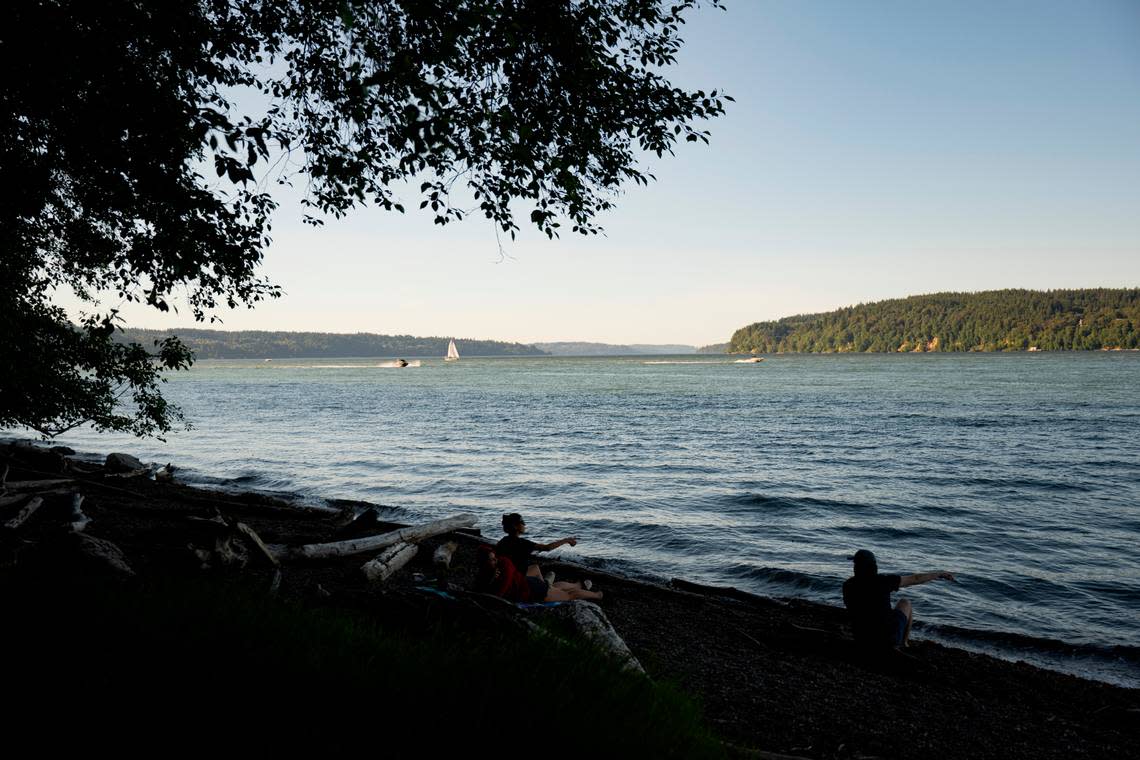Worried about heat stroke? How to identify heat illnesses ahead of scorching WA weather

Summer is officially here, and hot conditions are expected to affect the South Puget Sound starting this weekend.
The National Weather Service in Seattle issued a heat advisory Wednesday for parts of northwest and west central Washington, effective from noon Friday to 10 p.m. Monday.
Heat Advisory in effect for western WA from Friday through Sunday (coast)-Monday (interior). Widespread temperatures in the 80s and 90s with overnight lows in the 60s. Moderate to major risk of heat-related illnesses for much of the population. #wawx pic.twitter.com/WaEaf6eGQG
— NWS Seattle (@NWSSeattle) July 3, 2024
Puget Sound temperatures, such as in Olympia and Tacoma, are expected to reach the mid-to-high 90s, while temperatures in Bellingham are expected to reach as high as 89 degrees by Monday. Areas of eastern Washington, such as the Tri-Cities, could reach 110 degrees by Tuesday.
The risk of heat-related impacts will significantly increase as temperatures rise this week, according to the Weather Service, and especially impact those who are sensitive to heat or have no adequate cooling system.
Knowing the best ways to stay cool and signs of heat cramps, heat exhaustion and heat stroke is important.
Here is a guide to staying safe and cool this weekend.
Staying cool
For the lucky people with air conditioning in their homes, staying cool this weekend might not come as a problem — at least not until the next energy bill. But for those who don’t have air conditioning in the home, here are some tips for staying cool during the heat wave from the Tacoma-Pierce County Health Department.
Reducing heat indoors
Cover windows that receive a lot of sun and close the doors to rooms that get hot
Turn off lights and reduce the usage of electronics
Reduce the use of the oven or stove
Stay on the lowest floor in your home if possible
Take cool showers
Place a bowl of ice under a fan so that it circulates cold air
Stay indoors during the hottest times of the day
If you’re outdoors
Limit the time out in the sun and seek shade
Use sunscreen to avoid being sunburned
Wear a wet cloth to help cool you down
Drink water and try to avoid drinks that dehydrate you, such as coffee and alcohol
Visit a cooling center in your area-- malls, grocery stores or libraries
Do any outdoor activities in the morning or evenings to avoid peak heat
The Washington State Department of Health also advises people not to leave pets or people inside of parked cars, eat light meals more frequently and continuously check on individuals who are elderly or ill.
Symptoms of heat-related illnesses
Warm temperatures bring about risks of heat cramps, heat exhaustion and heat stroke.
The forecast remains on track for a hot 4th of July weekend. Highs will be in the 90s, peaking on Sunday. Warmth continues into early next week as highs slowly sink back into the 80s. Be mindful of symptoms of heat stress, as well as preventing wildfires. #wawx #PNWHeatWave pic.twitter.com/o80lOtbg0W
— NWS Seattle (@NWSSeattle) July 3, 2024
Here are some signs you should look out for, according to the Tacoma-Pierce County Health Department:
Heat cramps: Muscle pains in the stomach, arms or legs
Heat exhaustion: Heavy sweating, paleness, muscle cramps, tiredness, dizziness, headache, fainting, nausea
Heat stroke: Body temperature above 103 degrees, dry skin with no sweat, dizziness, unconsciousness and a strong, rapid pulse
The health department advises people experiencing any of the above symptoms to get to an air-conditioned location, sip cool sports drinks and loosen clothing. If symptoms do not subside, seek medical attention.
Anyone experiencing symptoms of a heat stroke should seek medical attention right away.

